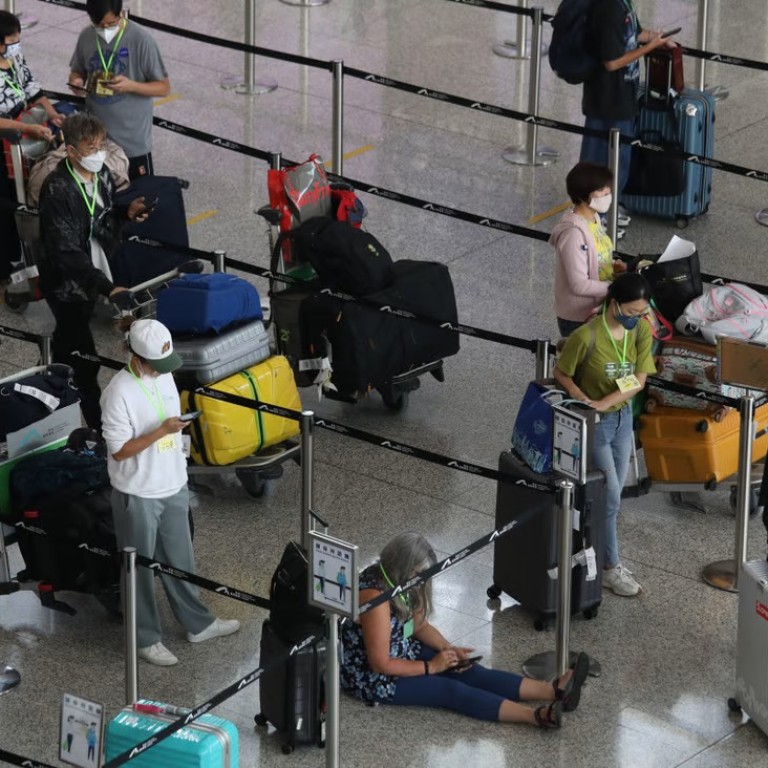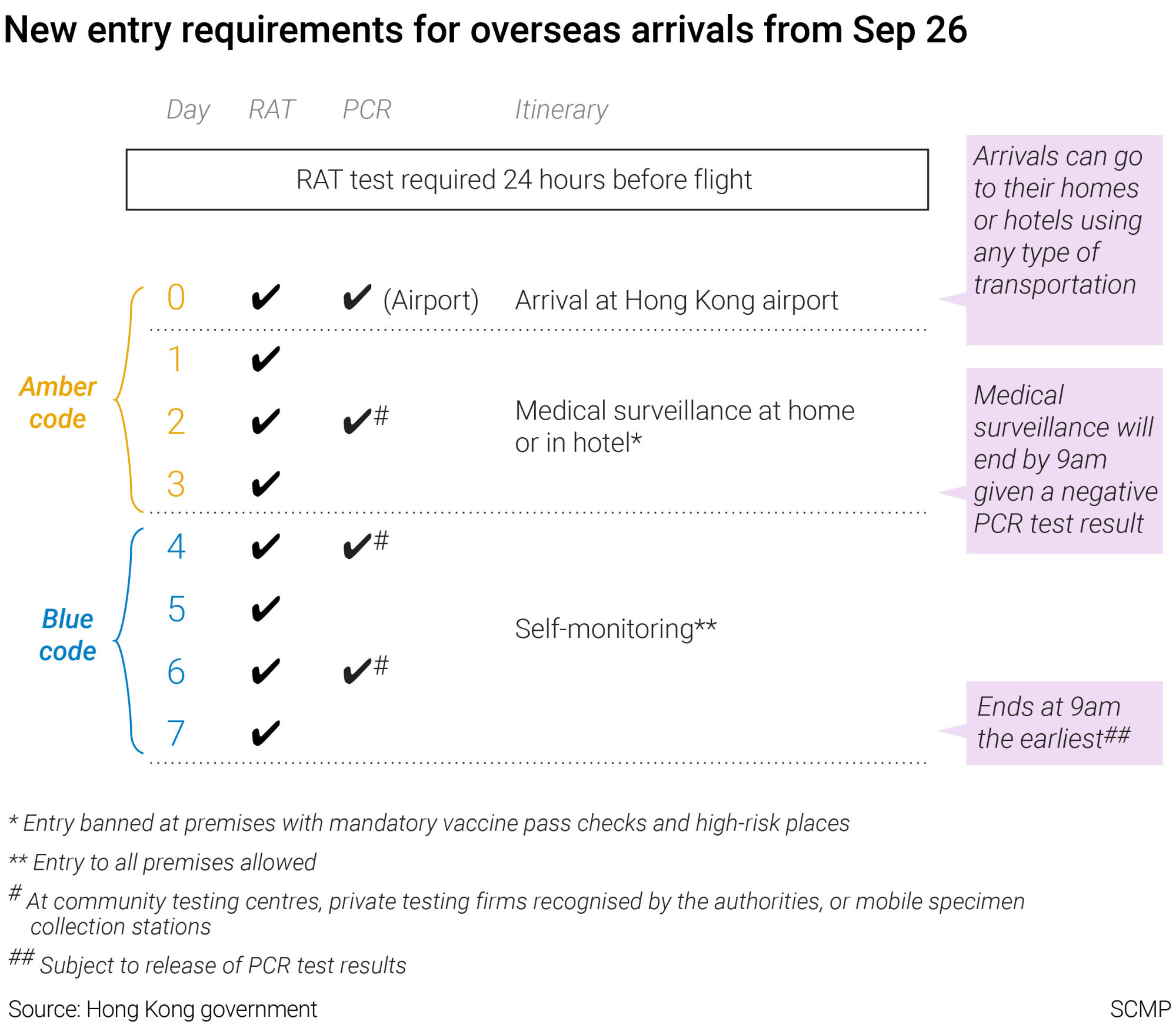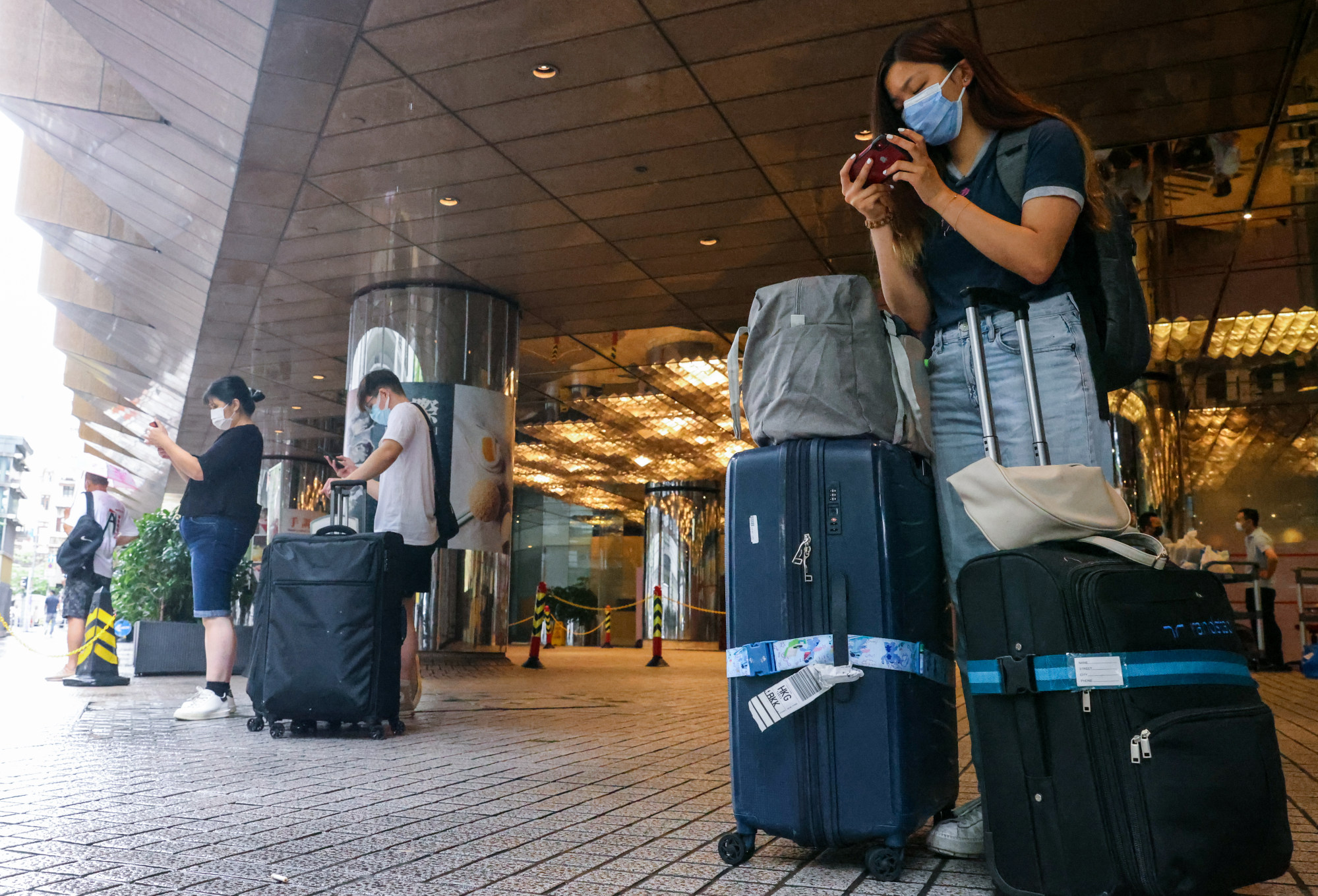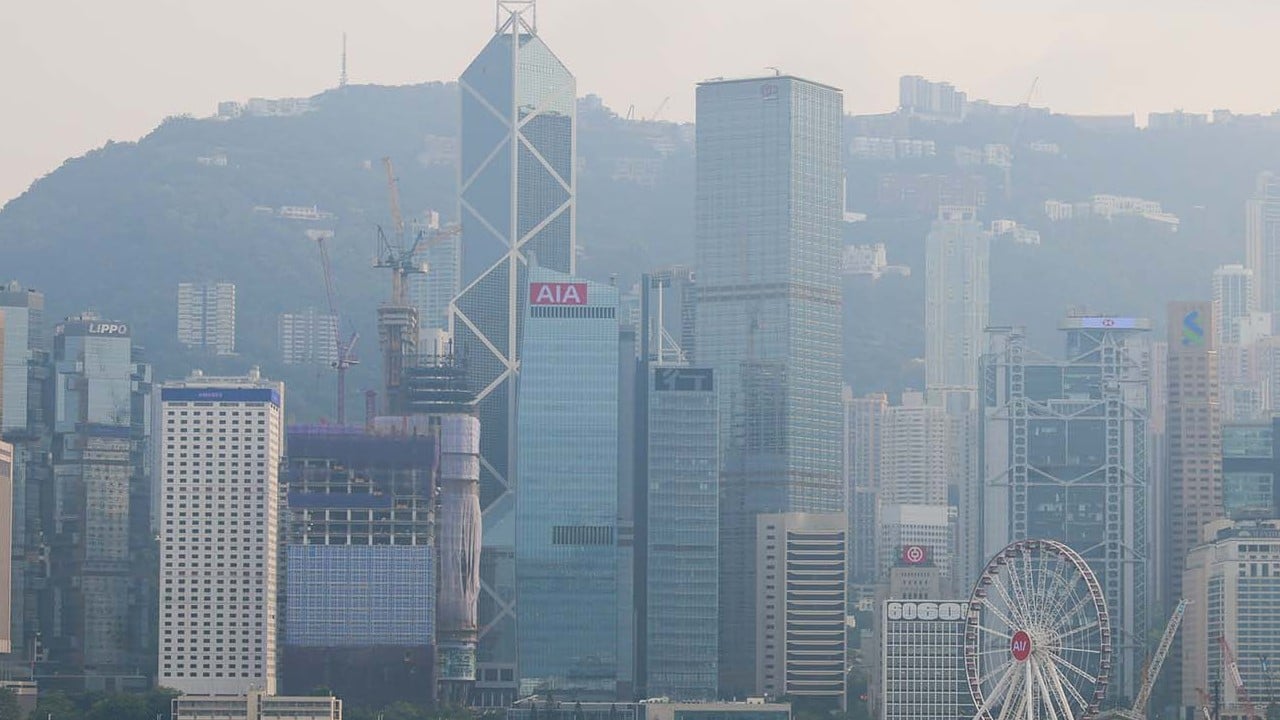
Coronavirus: no more hotel quarantine in Hong Kong although officials stop short of providing road map to completely lifting travel curbs
- Long-awaited move signals lifting of one of the world’s toughest anti-pandemic regimes, in force for more than two years
- Authorities had in August eased the week-long hotel quarantine requirement to a ‘3+4’ arrangement
The long-awaited scrapping of quarantine, announced on Friday, marks a significant easing of one of the world’s toughest anti-pandemic regimes after more than 2½ years of attempting to keep the coronavirus at bay at the cost of alienating business travellers, shutting out tourists, and frustrating local residents.
Hong Kong is finally axing hotel quarantine – here’s what you need to know
Detailing the new arrangements at a media briefing, Chief Executive John Lee Ka-chiu underscored the need to proceed in an “orderly manner” based on Hong Kong’s improving coronavirus situation.
“I don’t have a crystal ball … but if things go well, then of course we will be considering other new measures to allow even more activities in Hong Kong and allow more convenience for travellers to come,” he said.
“Our considerations are based on data analysis of the pandemic. We have also considered factors including people’s livelihoods, economic activities, Hong Kong’s competitiveness and ease of entry.”
Health authorities recorded 5,387 new coronavirus infections on Friday, including 156 imported ones, along with 12 more related fatalities. The city’s tally now stands at 1,736,413 cases. The Hospital Authority also said an additional 153 Covid-related deaths were recorded between February and April after adjustments to cases, taking the total to 10,099.
“Under the circumstances that we can put the pandemic under control, we will give Hong Kong the greatest space to connect with the world, give society the greatest economic impetus, reduce inconvenience for those who come to Hong Kong and not retrace our steps,” Lee said.
Citing a “stabilising pandemic situation”, the government also later announced it would suspend its daily Covid-19 briefing from Sunday and release caseload figures in press statements.
‘Japan expects surge in Hong Kong tourists if city scraps hotel quarantine’
Travellers will from Monday only need to undergo three days of self-monitoring at their choice of premises, including their homes or any hotel they have booked. That will bring to an end the current “3+4” arrangement where arrivals must quarantine in a designated hotel for three days and then spend four under home medical surveillance, with limited movements citywide.
Upon arrival, travellers will be given an amber health code under the city’s vaccine pass scheme, barring them for three days from entering most premises where visitors have to declare their vaccination status including restaurants and bars. But they will be able to use public transport.

In another change, travellers will only need to provide a negative rapid antigen test (RAT), which they can self-administer, and declare their results through a digital form 24 hours before boarding their flight. That replaces the need to have a negative PCR test before being allowed to board.
Unvaccinated residents will also be allowed to return to Hong Kong. However, they can only obtain a vaccine pass if they are fully inoculated.
The administration will also lift the quota for the “Return2hk” scheme, under which a certain number of local residents can come back from mainland China and Macau without quarantining. Quotas for the “Come2hk” for travellers from both places will also be lifted.
Beijing backs Hong Kong leader’s changes to Covid-19 travel rules
“We will monitor the situation closely so that all the risks can be well-controlled and things can progress in an orderly manner,” Lee said.
“If there is a positive development as we progress … there will be more room to do extra measures so we can have more movement, more activities and more room to go about different manoeuvres.”
Asked if the city had shifted from a “dynamic zero-Covid” strategy to coexisting with the virus, the chief executive said Hong Kong’s policy was in line with the nation’s.
“We still need to protect the young and elderly. We also deliver precise anti-epidemic measures and connect with the world,” Lee said. “We made the decisions after thorough discussion.”
Health minister Lo Chung-mau said the government’s principles included not “lying flat” – a term meaning to do nothing – and protecting the elderly and children. He noted that daily Covid-19 caseloads had peaked in early September after rising since May.

Lo added that during this time, the government had brought in various measures, such as requiring people to undergo RATs before attending banquets, and launching amber and red health codes. A red code indicates a person has tested positive for Covid-19.
About 70 per cent of the eligible population had received a booster shot, which was also a relatively high proportion globally, he said, but warned that the vaccination rate was not yet ideal, especially for those aged under 11 years and above 80.
As the highly anticipated announcement was made, Hong Kong’s flagship carrier Cathay Pacific’s website experienced high traffic and crashed from time to time. At one stage, waiting times hit 15 minutes but later fell back to four minutes, with each user being given 30 minutes to book their tickets.
Bus firms Citybus and Long Win Bus, which operate routes to and from the airport, both said they would increase services to cater to rising demand.
Health experts had earlier suggested that it was impossible for the city to return to zero daily infections, and recommended a policy change if caseloads – which had dropped from a high of more than 10,000 a day earlier this month to over 5,000 this week – stabilised, urging authorities to open up before a possible winter surge.
Officials had also faced mounting pressure from the business sector, which had joined the chorus of calls for the city to open up, citing rival hubs such as Singapore and other countries worldwide that have resumed quarantine-free travel.
In recent weeks, several major sports events have been cancelled or moved elsewhere in light of the strict pandemic measures, with organisers accusing the government of failing to make timely decisions to allow for proper preparations.
The city’s current social-distancing rules and the mask mandate remain in force, while patrons at bars and nightclubs are required to present a negative RAT result before entry.
Asked about the city’s competitiveness on Friday, Lee touted Hong Kong’s economic freedoms and its status as an international hub that offered a gateway into mainland China.
“We have a lot of appeal and attractions … that people will take into consideration on whether they come to Hong Kong, and I want to reduce inconvenience as much as possible,” he said.
Political commentator Lau Siu-kai, vice-chairman of semi-official think tank the Chinese Association of Hong Kong and Macau Studies, said the new policies showed the merits of the “one country, two systems” principle, which allowed the city a high degree of autonomy on matters such as public health.
“It would be impossible for mainland cities like Shanghai and Shenzhen to adopt policies like these, especially when they don’t have a border separating the city with their neighbours, and people just travel from one place to another,” he said.
Why cutting quarantine isn’t enough to revive Hong Kong’s economy
Business groups also hailed the changes. The Hong Kong General Chamber of Commerce, the city’s largest, welcomed the government’s decision and said it hoped for further relaxation of social-distancing restrictions to allow normal activities in the catering, retail, conference and services sectors.
Elsewhere, Japan and Taiwan both announced the easing of their immigration restrictions on Thursday. The Japanese government said that from October 11, the country would welcome foreign solo travellers and lift the cap on daily inbound arrivals.
Taiwan plans to remove its mandatory three-day quarantine and welcome all visitors by October 13 at the earliest.
Additional reporting by Rachel Yeo












